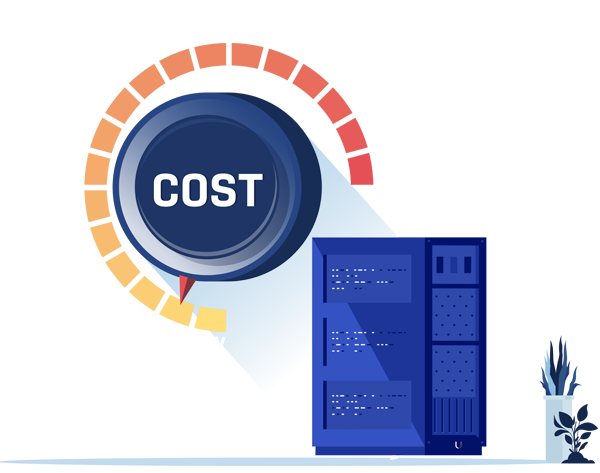Shared hosting is a type of web hosting service where multiple websites are hosted on a single physical server. In this setup, the resources of the server, such as CPU, memory, and disk space, are shared among the various websites that are hosted on that server. Each website has its own portion of the server’s resources, and they all use the same operating system.

Characteristics of shared hosting:
Cost Effective:
Shared hosting is often more affordable than other hosting options because the cost of maintaining and operating the server is distributed among multiple users.

Ease of Use:
Shared hosting is generally easy to set up and manage, making it a good option for individuals and small businesses that do not have advanced technical skills.

Maintenance and Security:
Server maintenance and security are typically managed by the hosting provider. This can be beneficial for users who do not want to deal with the technical aspects of server management.

Performance:
The performance of a website on shared hosting can be affected by the activities of other websites on the same server. If one website experiences a spike in traffic, it may impact the performance of other websites on the server.

Limited Resources:
Since resources are shared, each website on the server has access to only a specific amount of CPU, memory, and disk space. This can be a limitation if a website experiences a sudden surge in traffic or requires a significant amount of resources.

Disadvantages of Shared Hosting
Shared hosting is suitable for small to medium-sized websites, blogs, and businesses with moderate traffic and resource requirements. However, as a website grows and demands more resources, users may need to consider upgrading to other hosting options such as Virtual Private Server (VPS) hosting or dedicated hosting for better performance and control over server resources.
While shared hosting has its advantages, it also comes with some disadvantages, and it may not be the best option for every website. Here are some potential drawbacks of shared hosting:
- Limited Resources: Shared hosting means that resources such as CPU, memory, and bandwidth are shared among multiple users. If one website on the server experiences a sudden traffic spike or resource-intensive activities, it can impact the performance of other websites on the same server.
- Performance Issues: Due to resource sharing, the overall performance of your website can be affected, especially during peak times or if neighboring websites are using a significant portion of the server’s resources.
- Less Control: Shared hosting plans come with limited control over server configurations. Users may not have the ability to customize server settings or install certain software, which could be a limitation for advanced users with specific requirements.
- Security Concerns: While hosting providers implement security measures, the shared environment means that the security of your website is also dependent on the security practices of other users on the same server. If one website is compromised, it could potentially affect others.
- Traffic Restrictions: Shared hosting plans often come with predefined traffic limits. If your website exceeds these limits, the hosting provider may take measures such as throttling your bandwidth or even suspending your account until the issue is resolved.
- Not Ideal for Resource-Intensive Applications: Websites with resource-intensive applications, high traffic volumes, or complex functionalities may outgrow the limitations of shared hosting. In such cases, a more scalable solution like Virtual Private Server (VPS) or dedicated hosting might be more suitable.
- Dependency on Hosting Provider: Users relying on shared hosting have limited control over the server environment. If the hosting provider experiences technical issues or downtime, it can affect all the websites hosted on that server.
- Limited Software Options: Shared hosting environments often come with restrictions on the types of software and applications that can be installed. Some advanced or specialized software may not be supported.
- Email Deliverability Issues: Shared hosting servers may be used by multiple websites for email services. If another website on the server engages in spammy behavior, it could affect the email deliverability of all the websites on that server.
While shared hosting is a cost-effective and user-friendly option for many, it’s important for website owners to assess their specific needs and consider these limitations. As websites grow, they may need to explore other hosting options, such as VPS or dedicated hosting, to accommodate increased traffic and resource requirements.


